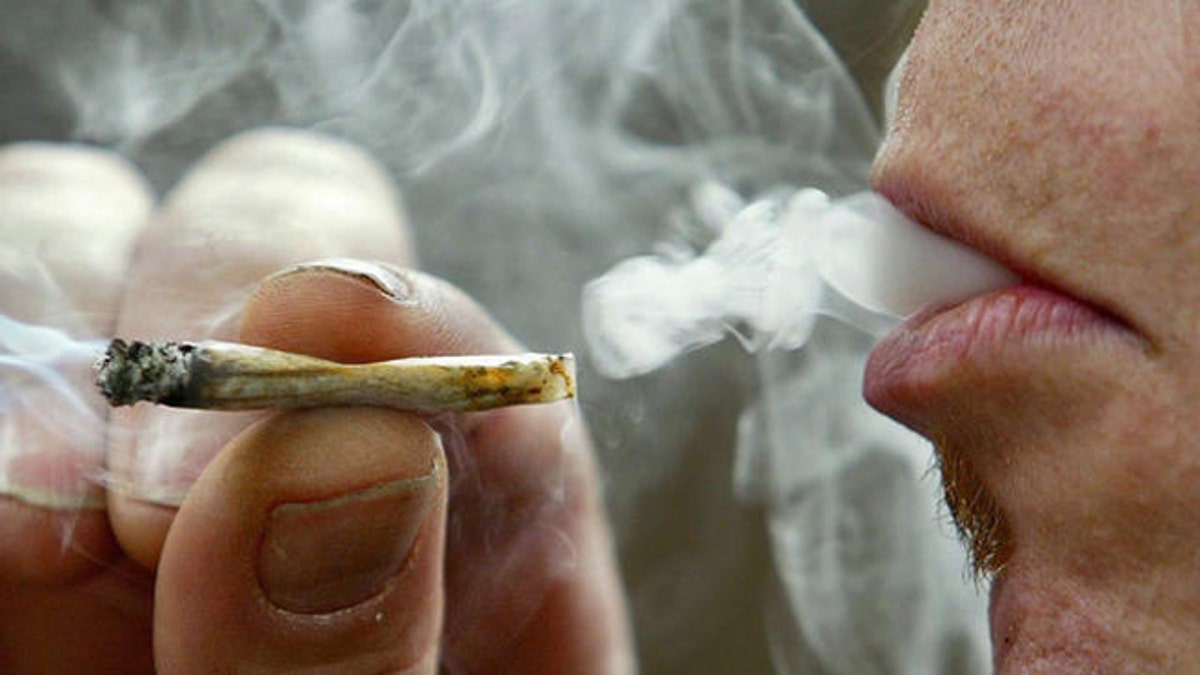
The Colombian government is testing a new tactic to wean addicts of synthetic drugs, a moe that has some people praising the effort while other claiming it’s a dopey idea.
In the upcoming weeks, officials in the country's capital, Bogotá, will begin a program giving marijuana to addicts of bazuco -- a cheap form of cocaine made out of drug residue mixed with kerosene and sulfuric acid that gives users a crack-like high and a heroin-like addiction.
Researchers working on the project hope to help addicts kick their habit by easing them off the harder substance by using marijuana, which they suspect will be less addictive.
“I had tried other drugs before that, but the addiction caused by bazuco is truly uncontrollable,” Javier Cortés García, a former addict, told the website InfosurHoy. “The five months I lived on the streets, I couldn’t even remember who I was – all I wanted was bazuco to somehow satisfy the craving – a craving that never ends until the next fix. It’s really like living a nightmare, but you’re wide awake.”
There are an estimated 7,500 bazuco users among the city's 9,500 homeless people. Over the last three years 227 homeless people have been murdered in Bogotá and there have been complaints of bazuco users turning neighborhoods into wastelands.
“People accuse us of turning bazuco addicts into marijuana addicts but that’s an urban myth,” Ruben Dario Ramirez, director of the Center for the Study and Analysis of Coexistence and Security, which is spearheading the project, according to the Miami Herald. “This program is about reducing personal harm and the risks to society.”
In Colombia, as well as in the United States, marijuana is viewed by many as a “gateway drug” that leads users to harder substances such as cocaine and heroin. Members working on the project argue that the initiative is not about stopping drug use as a whole, but attempting to make bazuco users functioning members of society.
“This project is not aimed at getting people to quit using,” said Julián Andrés Quintero, the head of Acción Técnica Social, a non-profit that is working on the initiative. “This is about reducing risks and mitigating the damage. We want people to quit a substance that is very, very damaging and transition to something less dangerous and which will allow them to function in society.”
Researchers cite the successes of similar programs in Canada, Brazil and Jamaica as proof that the initiative will succeed in Colombia. A 2002 study of crack users in Jamaica found that of 14 women surveyed who gave up the drug, 13 attributed to smoking marijuana, according to the Iowa College of Nursing.
Critics of the program say that the researchers are getting high of their own supply and just replacing one addiction with another.
“This plan is completely absurd,” said Augusto Pérez, the director of Nuevos Rumbos, a Colombian think-tank that researches drugs and addiction. “It’s as if they didn’t know that everyone that smokes bazuco already smokes marijuana. By giving them marijuana, all they will be doing is saving the (addicts) money so they can buy more bazuco.”
“I give this program zero probabilities of working,” he added, according to the Herald.
Researchers countered that besides the marijuana, bazuco addicts will also be receiving treatment, emergency shelter and job training to help get them back on their feet.
Colombia is not known internationally for being lax on drugs. For years, the country has waged an offensive against drug cartels operating in the country and has recently brought down the production of cocaine in the country.
Recently Colombia’s laws on marijuana, however, have relaxed a bit. While the sale and public use of marijuana is illegal in the Andean nation, Colombians are allowed to carry a small amount of marijuana or cocaine for personal use and are permitted to grow up to 20 marijuana plants for personal consumption.
Follow us on twitter.com/foxnewslatino
Like us at facebook.com/foxnewslatino








































